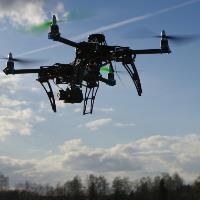(BRUSSELS) – The European Commission adopted common EU-wide rules for drones Tuesday, setting technical requirements and features and capabilities that drones must have in order to be flown safely.
The new rules, which are also aimed at helping to foster investment and innovation in what is seen as a promising sector, build on national rules already in place and provide a harmonised framework across the European Union.
“Today’s decision is vital for the further development of the European drone sector,” said Transport Commissioner Violeta Bulc: “We wholeheartedly support the development of these new technologies and services, which are essential for the digitalisation and decarbonisation of the European economy.”
“However, above all, we have to ensure that they are safe for other airspace users and people on the ground,” she added.
The rules are a first step towards a comprehensive set of rules, says Ms Bulc, which will ensure “safe, secure and green drone operations throughout the European Union.”
The approach taken by the Commission, with the support of the European Union Aviation Safety Agency, is to apply the highest safety standards achieved in manned aviation to drones as well.
The rules are based on an assessment of the risk of operation, and strike a balance between the obligations of drone manufacturers and operators in terms of safety, respect for privacy, the environment, protection against noise, and security.
For example, new drones will have to be individually identifiable, allowing the authorities to trace a particular drone if necessary. In addition to the technical requirements for drones adopted today, the Commission intends to adopt provisions covering the operation of drones.
The rules will cover each operation type, from those not requiring prior permission, to those involving certified aircraft and operators, as well as minimum remote pilot training requirements.


